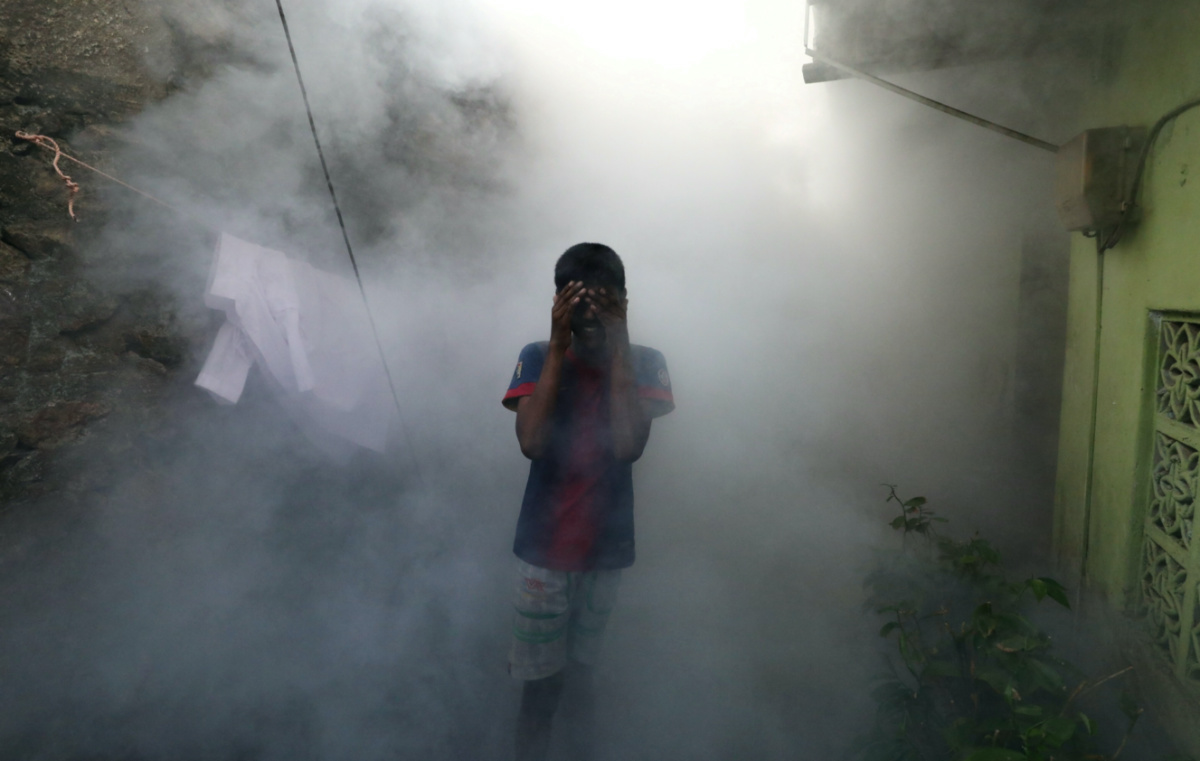Geneva, Switzerland
Reuters
The World Health Organization has warned that cases of dengue fever could reach close to record highs this year, partly due to global warming benefiting mosquitoes that spread it.
Dengue rates are rising globally, with reported cases since 2000 up eight-fold to 4.2 million in 2022, WHO said.

A boy covers his face from smoke as a health worker fumigates against mosquitoes in a residential area, as Sri Lanka tries to curb dengue fever across the island in Colombo, Sri Lanka, on 12th July, 2023. PICTURE: Reuters/Dinuka Liyanawatte/File photo
The disease was found in Sudan’s capital Khartoum for the first time on record, according to a health ministry report in March, while Europe has reported a surge in cases and Peru declared a state of emergency in most regions.
In January, WHO warned that dengue is the world’s fastest-spreading tropical disease and represents a “pandemic threat”.
About half of the world’s population is now at risk, Dr Raman Velayudhan, a specialist at the WHO’s control of neglected tropical diseases department, told journalists in Geneva on Friday.
Reported cases to WHO hit an all-time high in 2019 with 5.2 million cases in 129 countries, said Velayudhan via a video link. This year the world is on track for “four million plus” cases, depending mostly on the Asian monsoon season.
Already, close to three million cases have been reported in the Americas, he said, adding there was concern about the southern spread to Bolivia, Paraguay and Peru.
Argentina, which has faced one of its worst outbreaks of dengue in recent years, is sterilising mosquitoes using radiation that alters their DNA before releasing them into the wild.
“The American region certainly shows it is bad and we hope the Asian region may be able to control it,” Velayudhan said.
We rely on our readers to fund Sight's work - become a financial supporter today!
For more information, head to our Subscriber's page.
WHO says reported cases of the disease, which causes fever and muscle pain, represent just a fraction of the total number of global infections since most cases are asymptomatic. It is fatal in less than one per cent of people.
A warmer climate is thought to help the mosquitoes multiply faster and enable the virus to multiply within their bodies. Velayudhan cited the increased movement of goods and people and urbanisation and associated problems with sanitation as other factors behind the increase.
Asked how the heatwave affecting the northern hemisphere would affect the spread of the disease, he said it was too soon to tell.
Temperatures over 45 degrees Celsius “should kill the mosquito more than breeding it, but the mosquito is a very clever insect and it can breed in water storage containers where the temperature doesn’t rise that high.”






